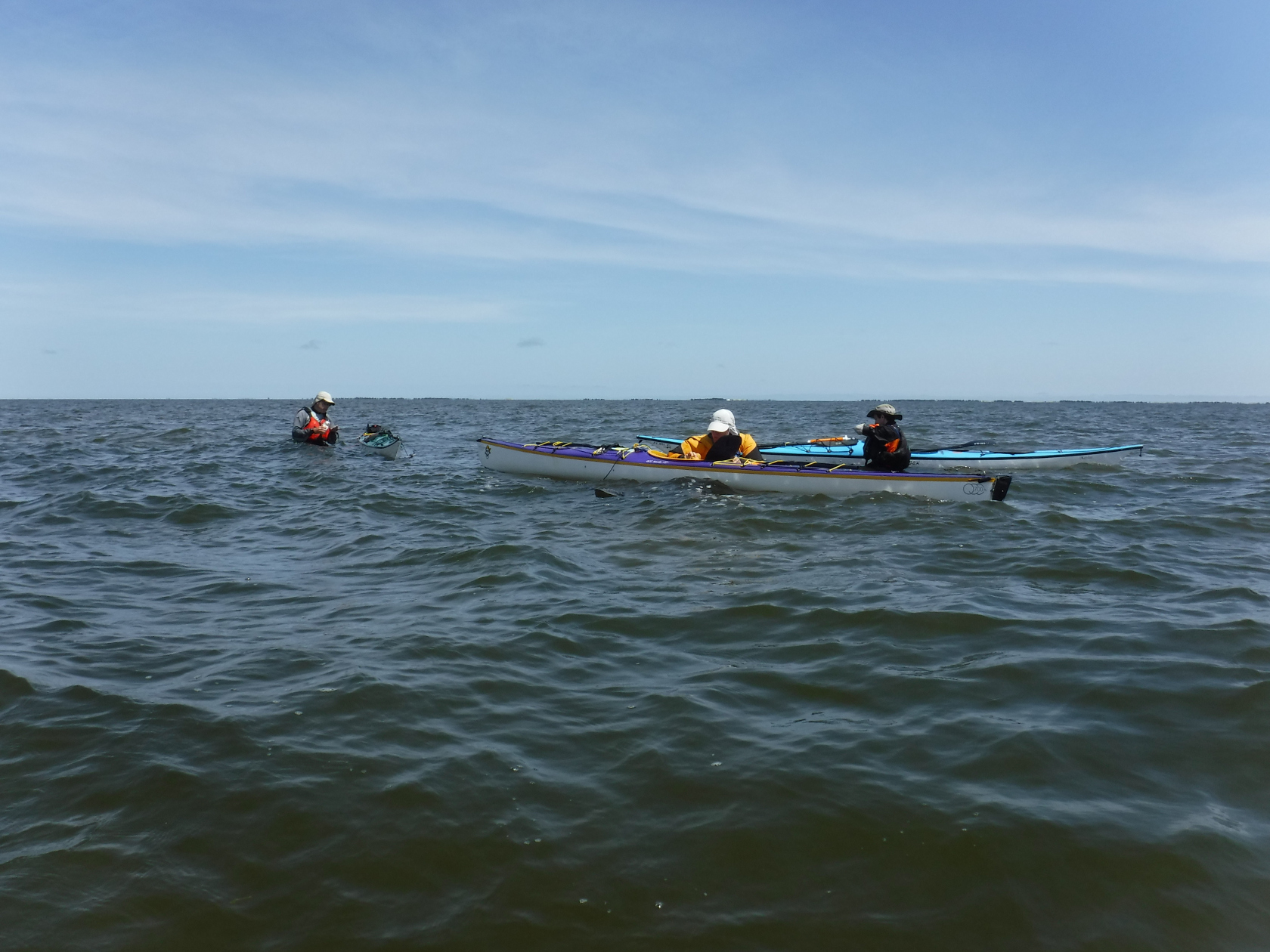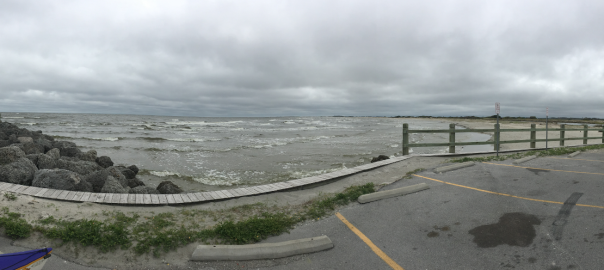Recently, several other paddlers and myself attempted to undertake a somewhat ambitious paddle around the North Carolina Outer Banks. Our initial plan was to start at the Cedar Island Ferry, paddle to Portsmouth, then ocean side around Ocracoke to spend the night in Hatteras. Then, paddle back to Ocracoke to spend the night, having completely circumvented Ocracoke Island.
Of course, as is often the case, we didn’t end up making our goal, as we hit a few obstacles. The first day put us in Portsmouth and we camped at a great spot facing Ocracoke, more or less in line with our goal. We ended up going a bit closer to shore than we had planned, but still made decent time.
Our venture closer to shore netted us ended up with a really cool picture of us standing out in the middle of the ocean, as we took a break by a duck blind. It was sort of surreal to be standing in chest high water several miles from the shore.


While we made decent time the first day, the second day proved to be much more difficult. We skirted across the bay and around the point of Ocracoke, making pretty good time. However, once ocean side, we ran into what we would later learn was a littoral current.
A littoral current, also sometimes referred to as a Longshore drift, is where you end up with a current running rather strongly at an angle to the shoreline, rather than coming directly at the shore. There are a few factors that come into play here, like wind stacking up, sediment from the ocean floor, and the angle of the shoreline in relation to the waves. The end result is you end up with a strong current running along the shore.
Of course, at the time we, or at least I, didn’t know this, but we did know that we were not making good time. We were doing averages of 1 and 2 miles per hour and at that rate, there was no way we were going to make our goal. Due to water issues we decided to call it and head back to Ocracoke, camping there.
To complicate matters, we had an incident during a beach landing, as I was too close to one of the other paddlers and when I got wiped out by a wave, my boat was pushed into a fellow paddlers, damaging his hatch, paddle, and likely foot pegs. I learned an important lesson here on the importance of not coming up too close or following a boater into shore. I should of been much more staggered during my landing. The landing itself went fine, however the steepness of the beach and the following times of the waves hit me before I could get out of my boat.
On the return trip, we went much faster and I even managed to right myself after being flipped by a wave, in one of the first times I didn’t have to swim after being flipped. We ended up camping in Ocracoke and taking the ferry back the next day.

Since we ended up coming in a day earlier than planned, we made the most of it and ate dinner and breakfast in Ocracoke and then stopping in New Bern for dinner the next day. The following morning, we decided to have a beach day and spend several hours playing in the surf in Emerald Isle, prior to heading back to Raleigh. This ended up being a great experience for me as, partly due to my much improved roll, but also just due to having a shorter boat, I was able to get in a lot of surf practice and for the first time, actually felt like I understood some of the mechanics of handling rougher surf.

